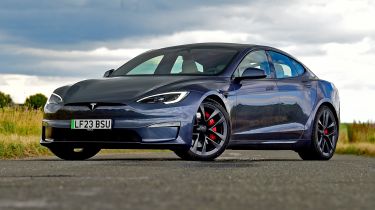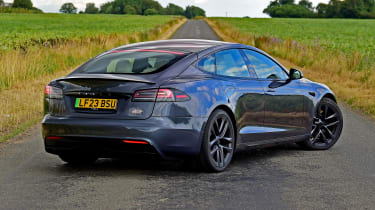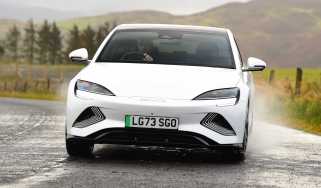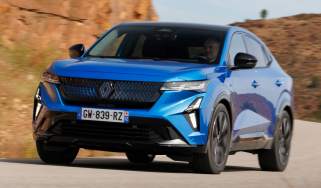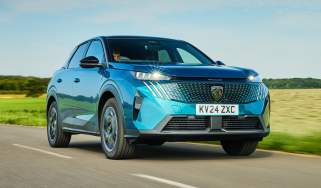Tesla Model S review - Reliability and safety
The Model S’s Euro NCAP safety scores are first-rate and build quality has improved, but it’s got a ways to go

The Model S has been crash-tested by industry experts Euro NCAP twice: once in 2014, then again in 2022, and received the maximum five-star safety rating both times. Following the most recent round of testing, the Model S scored a 94 per cent for the adult occupant protection, 91 per cent for child occupant protection and a near-flawless 98 per cent in the safety assistance technology category.
While Tesla has weathered various media storms around its Autopilot system, which has been implicated in a handful of serious accidents sometimes attributed to driver inattention, it's still one of the smoothest and most advanced set-ups of its type.
Build quality was previously one of the Model S’s biggest failings, but the updated model has made some big steps in the right direction, particularly in the cabin. However, some of the external panel gaps on the Model S we drove were quite large, so there's still work to be done.
Tesla is also committed to continually updating the software installed on all its vehicles. As well as routinely upgrading the performance of autonomous driving and safety systems, it’s also possible to effect ‘repairs’ over the air. For example in mid-2017, Tesla issued an over-the-air fix for a potential airbag fault, which would otherwise have prompted a nationwide recall notice.
Used - available now

2016 Tesla
Model S
69,380 milesAutomaticElectric
Cash £27,800
2016 Tesla
Model S
55,600 milesAutomaticElectric
Cash £17,743
2016 Tesla
Model S
110,000 milesAutomaticElectric
Cash £17,500
2013 Tesla
Model S
6,800 milesAutomaticElectric
Cash £22,999The Tesla Model S didn’t make it onto our list of the best cars to own based on the results of the 2023 Driver Power owner satisfaction survey, and neither did its SUV counterpart, the Model X. However, Tesla as a brand performed much better in the survey, and managed to finish third in our best car manufacturer rankings – behind Polestar and Porsche. Owners weren’t particularly pleased with their cars’ fit and finish or ride quality, but had plenty of praise when it came to performance, running costs, safety features and infotainment.
Warranty
All Teslas, including the Model S, are covered by a four-year/50,000-mile warranty, which is a reasonably long time but the mileage limit is less generous, especially if you plan to make full use of electric saloon’s huge range on lengthy journeys.
The Model S also comes with a battery and drive unit warranty lasting eight years or 150,000 miles (whichever comes first), with a minimum 70 per cent retention of battery capacity over the warranty period. It's transferable between owners, too, even if you never service the car.
Servicing
When it comes to maintenance, Tesla simply says “your vehicle should generally be serviced on an as-needed basis”. But it does recommend you get the Model S’s brake fluid checked every two years, and the cabin air filter should be replaced after three years, among other small tasks.
You can schedule a service via the Tesla app and, at the time of writing, Tesla has 33 Service Centres in the UK.
